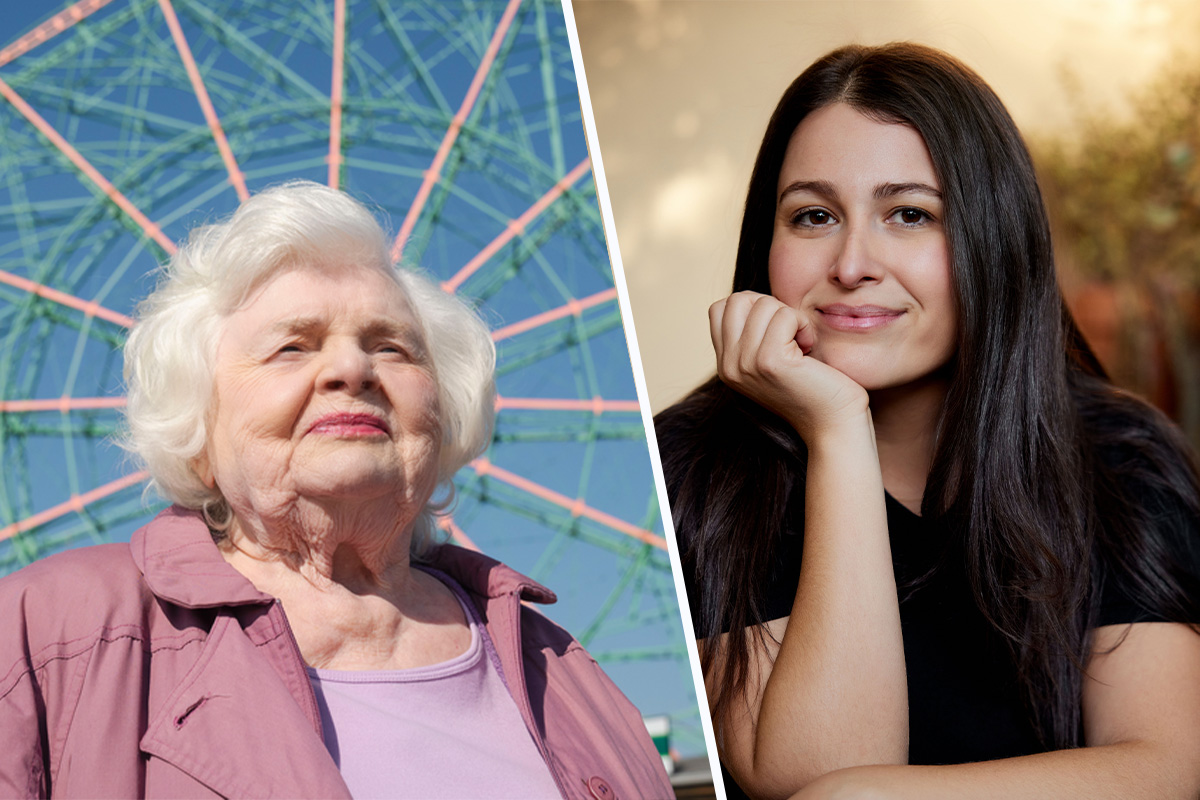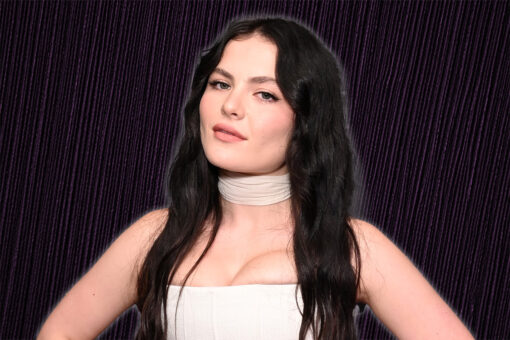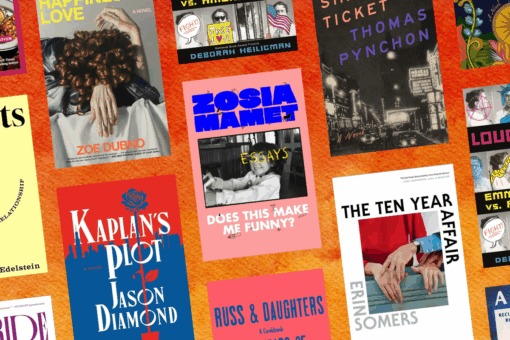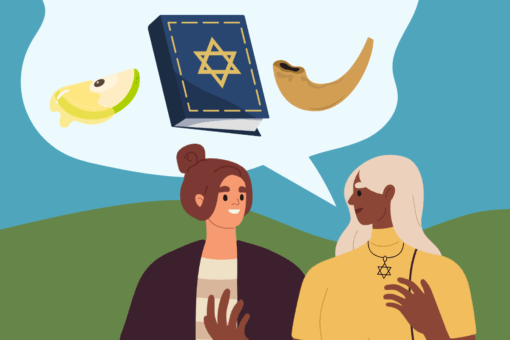Screenwriter Tory Kamen wrote the script for “Eleanor the Great” inspired by her own grandmother, Elinore. On its face, it sounds like a heartening gesture. It’s one made even more impactful given that Elinore passed away in 2020 and that the film, out today, is directed by Scarlett Johansson and stars actress June Squibb.
There’s just one slight catch: “Eleanor the Great” is about a woman who lies about being a Holocaust survivor.
“My grandma – I’d like to make this totally clear – would never lie about something like this in a million fucking years. That’s important,” the Jewish screenwriter tells me when we meet over Zoom a few weeks ago. “I think that my entire extended family is like, ‘What did you have grandma do?’ I have made sure that every single person I talked to, I lead with, ‘Hi, I’m Tory. My grandma didn’t lie about this. My grandma was a lovely woman, she didn’t lie.'”
Rather, the movie draws on Elinore Kamen’s cross-country move from Florida to New York City when she was 95 years old. It parallels Elinore’s struggle to make friends and build community outside of her immediate family. Eleanor even shares bits of Elinore’s personality. But that’s where the similarities between Tory’s grandma and the main character of this tender, profound and at times, hilarious film end.
“Eleanor the Great” follows 94-year-old Eleanor Morgenstein (June Squibb) just after she loses her best friend, a Holocaust survivor named Bessie (Rita Zohar). Seeking solace and care, Eleanor moves from Florida to New York to be closer to family and inadvertently joins a group for Holocaust survivors at the JCC. Except, instead of clarifying that she’s not a survivor and leaving the group, Eleanor tells Bessie’s story as her own.
Her lie becomes more complicated by the fact that Eleanor befriends a young journalism student Nina (Erin Kellyman) through the group. The pair bond over grief — Nina recently lost her mother — and Nina insists on writing Eleanor’s story for a class project. But it’s not until Nina’s news anchor father Roger (Chiwetel Ejiofor) decides to support Nina’s endeavor and film the late-in-life bat mitzvah Eleanor is having, but hasn’t told her family about, that Eleanor’s lie threatens to implode her newfound companionship and purpose.
All-in-all, “Eleanor the Great” examines the choices we make in grief, how the lines can blur between ourselves and the ones we hold most dear and who has the right to tell another’s story. Through Kamen’s carefully crafted script, Scarlett Johansson makes a solid directorial debut and June Squibb delivers another knockout performance.
Tory caught up with Hey Alma to chat about “Eleanor the Great,” working with June Squibb and Scarlett Johansson and whether or not she thinks Eleanor “gets away with it” in the end.
The following conversation is lightly edited and condensed for clarity, and contains spoilers.
Congratulations on “Eleanor the Great.” It’s such a fun and poignant movie, and it obviously has personal notes for you. First, could you tell me a bit about your Jewish background?
I was raised in New York City on the Upper East Side, which I think regardless of if I was actually Jewish or not, makes me Jewish. My dad is Jewish and was raised very religious in the Bronx. And my mom is actually Italian. She’s Catholic. Growing up, I didn’t really care about either. I loved whichever holiday was more exciting — which so sorry, but it was Christmas.
No, I hear that.
As I got older, I started connecting with Judaism a bit more. Those ideals really spoke to me and Judaism just connected with me more than Catholicism. And by a little bit more, I do mean a lot more. I felt very culturally Jewish, and I’m really proud of being a New York Jew.
And did you feel a connection more to Judaism because of your grandmother as well?
I would have never really come to it if not for her. And specifically, I probably wouldn’t have come to it if not for my grandmother’s best friend, Bessie. I use her name in the film. She was my grandmother’s best friend in Florida. She’s a Holocaust survivor, and I remember when it was around time for me to think about having a bat mitzvah, the idea had never really come up. You know, my mom is Catholic, my dad is Jewish. We weren’t really part of any temple. We weren’t really practicing. We did Rosh Hashanah and Hanukkah and the holidays. But that’s kind of it. And around the time I turned 11 or 12, Bessie said, “I didn’t survive the Holocaust to watch you not get bat mitzvahed.” And I said, “Oh, that’s a threat, OK.”
But seriously, there was pressure on me and I was a very people-pleasing girl. I still at times am. But specifically for that, I thought, “OK, well, if my elders, and especially this one woman, is telling me that I really should be doing this… and if it comes with a party… I guess I should be doing this.” And then as I did it, I really loved Hebrew school. I went to Shaaray Tefila on the Upper East Side, and I had a great time. It was so, like, New Age-y. They taught a class called “God in ‘The O.C.’”
That’s amazing. So, I love that some details in the film — that Eleanor is from the Midwest and converted — mirror June’s own experience. Was that intentional?
The original script was based on my grandmother. My grandma’s from the Bronx, born and raised, and from a Jewish family. And that’s how the script was originally written. When June came on board, and specifically when Scarlett came on board, she felt it was better to kind of mimic exactly what June’s background was, which is that she was born in the Midwest, and she married a Jewish man and converted for him.
I wrote it with June [Squibb] in mind, but never in a way of like, “Oh, June Squibb is actually going to do this.” Because how would I have possibly contacted her? I had no credits. I went through a really long journey and a long process with this script — I started writing “Eleanor the Great” in early 2016 as an assignment for my MFA in screenwriting at USC. But I never really gave up on writing it and rewriting it and rewriting it and refining it. I took it through the Sundance Lab Writing Intensive, and almost 10 years later, we’re coming out next week.
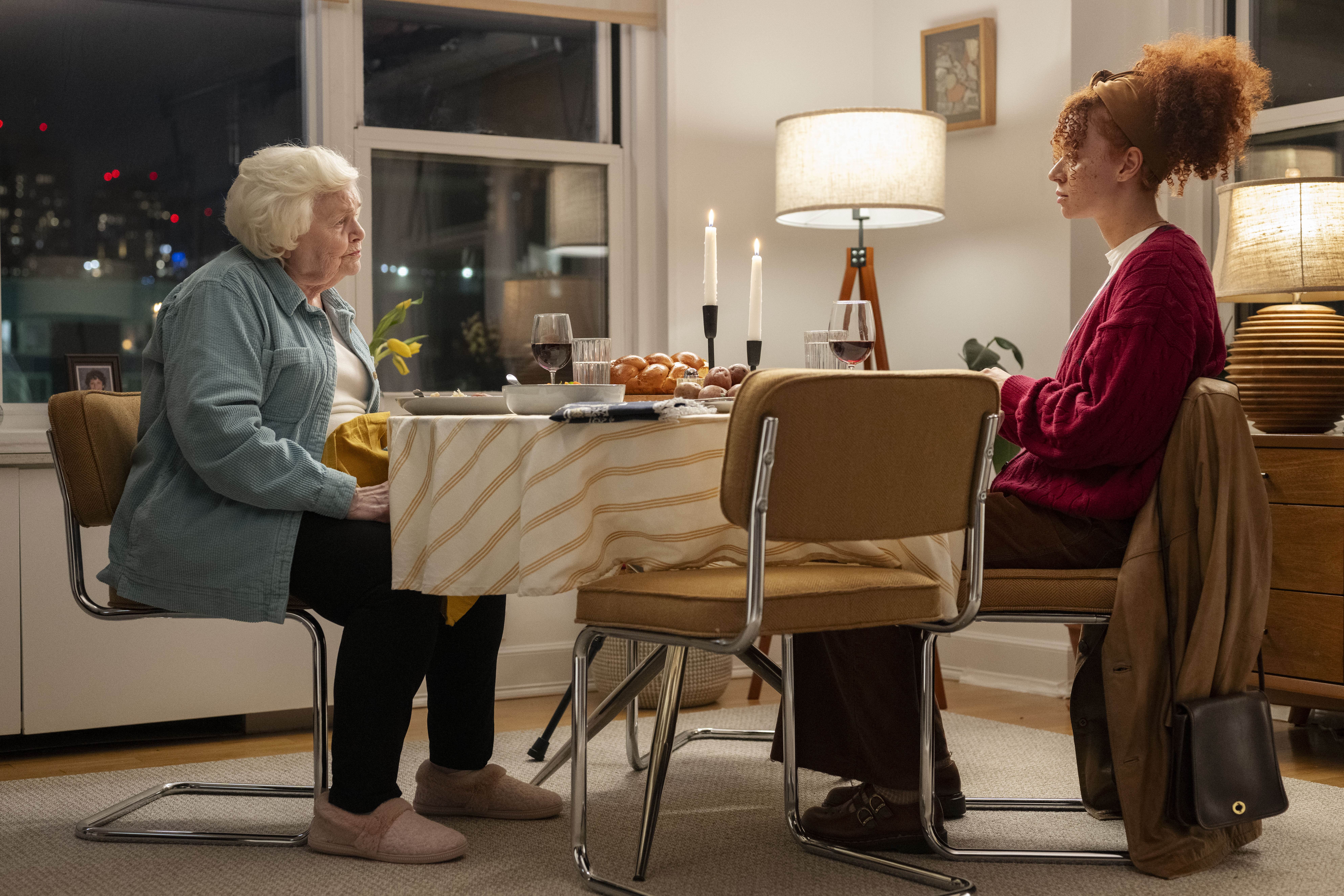
Mazel tov on that! And how much of Eleanor and her personality is modeled on your grandmother?
I have a very sweet, lovely grandmother, and I showed her the script before she passed in 2020. I said, “I wrote this script kind of for you.” She looked at the title page and she said, “You spelled my name wrong.” But I chose to change the spelling because this character does some really fucked up shit and I wanted a little bit of difference. But that’s sort of a similarity to the character in and of itself. And there are some things that she said [in the movie] and some of that grit. She was particular, but she was a lot more loving than Eleanor, outwardly, unconditionally.
What was your reaction when June and Scarlett signed on to the project?
I had always dreamed of June. So I had written her a letter to go along with the script, basically a love letter, saying, “Please do this. I love you so much.” And I didn’t even have time to send the letter before she said yes.
Wow.
I know. I just did a Q&A with her last night, and she said that she knew she wanted to do it two pages in. And I remember getting the news that she wanted to do it, and I think that was the happiest day of this script’s life for me. Just knowing that even if it never got made, that June connected with it and saw something in it was really, really surreal and great.
And the day that Scarlett signed on, I was fighting with my mom over a rug in a West Elm. I got the phone call that Scarlett was going to direct and produce it, and I fell back on one of those show couches and was just crying. And then my mom and I kept fighting, and I bought the rug. I put it on my office floor, and I laid down on it for like three hours, and just stared at the ceiling, and was like, “OK, this is gonna happen. This is gonna happen.”
I met Scarlett two months later. Scarlett has a pretty full dance card, and I kind of thought maybe if she just adds one more thing to her schedule, who knows when the movie would happen. Maybe it wouldn’t. But I walked into her office, and it was unbelievably clear that she had already hired a lot of people on this project, and that she was going to make it. Scarlett Johansson is the most powerful person I’ve ever met. She really knows what she wants, and she gets it done. So when she said that she was going to make it, I should have just believed her.
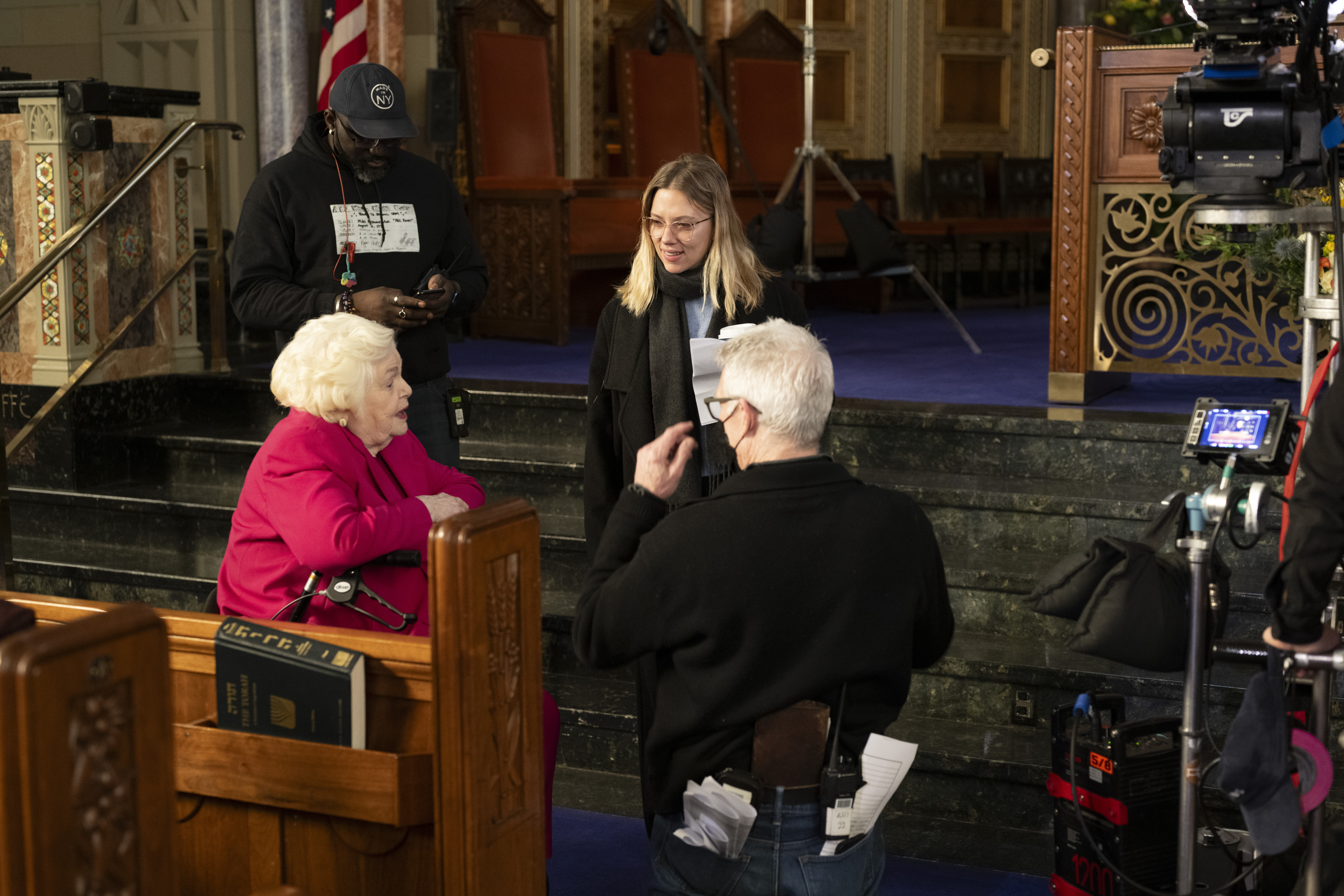
How involved in the filming process were you?
I came out to New York for the last three weeks of shooting, and we were shooting at Rodeph Sholom on the Upper West Side. That was a temple that my family had applied to be members of when I was having a bat mitzvah, and they had said no, because I was half Catholic. And so I was kind of like, “Oh, I’m sneaking in now… with a huge film crew.” So I was there for the entire filming of the synagogue sequence. It was really wild. But I didn’t need to be too involved, because I had done so much on the script beforehand that once I handed it over to Scarlett, that was Scarlett’s movie.
The film cast real-life Holocaust survivors to play the survivors in the movie. How did that happen?
It was really important to Scarlett and also to me that we bring the Shoah Foundation on as soon as possible. I think during our first meeting it was discussed that we would try and get real Holocaust survivors in the movie. And that was pretty much set in motion immediately. We also discussed then that Bessie’s story was going to go through the Shoah Foundation for multiple rounds of edits to make sure that everything could be as factual as possible.
With Bessie’s story, I was really interested in the choice in the film where we hear Bessie’s story, but we don’t ever see it in flashback, or any of the violence that she actually experiences. I was curious why you made that choice?
Another thing that was important to me was that we never really saw Eleanor telling Bessie’s story. I wanted that to be from Bessie’s mouth. That story should only be told by Bessie. And Rita Zohar, who plays Bessie, is a Holocaust survivor herself, and does an unbelievable job. The lack of violence in the movie was extremely intentional, because I think that hearing these stories — first of all, stories are going to be all that we’re left with. They’re powerful and haunting and terrible enough that you don’t need the visual. And I do think that the visual of somebody telling their own story in their words is sometimes more effective than watching something play out in real time, especially when it comes to violence. And especially because American moviegoers are so numb to watching violence now, there’s so much of it in movies, that sometimes it’s just more powerful to have a close up on somebody’s face, telling a harrowing story.
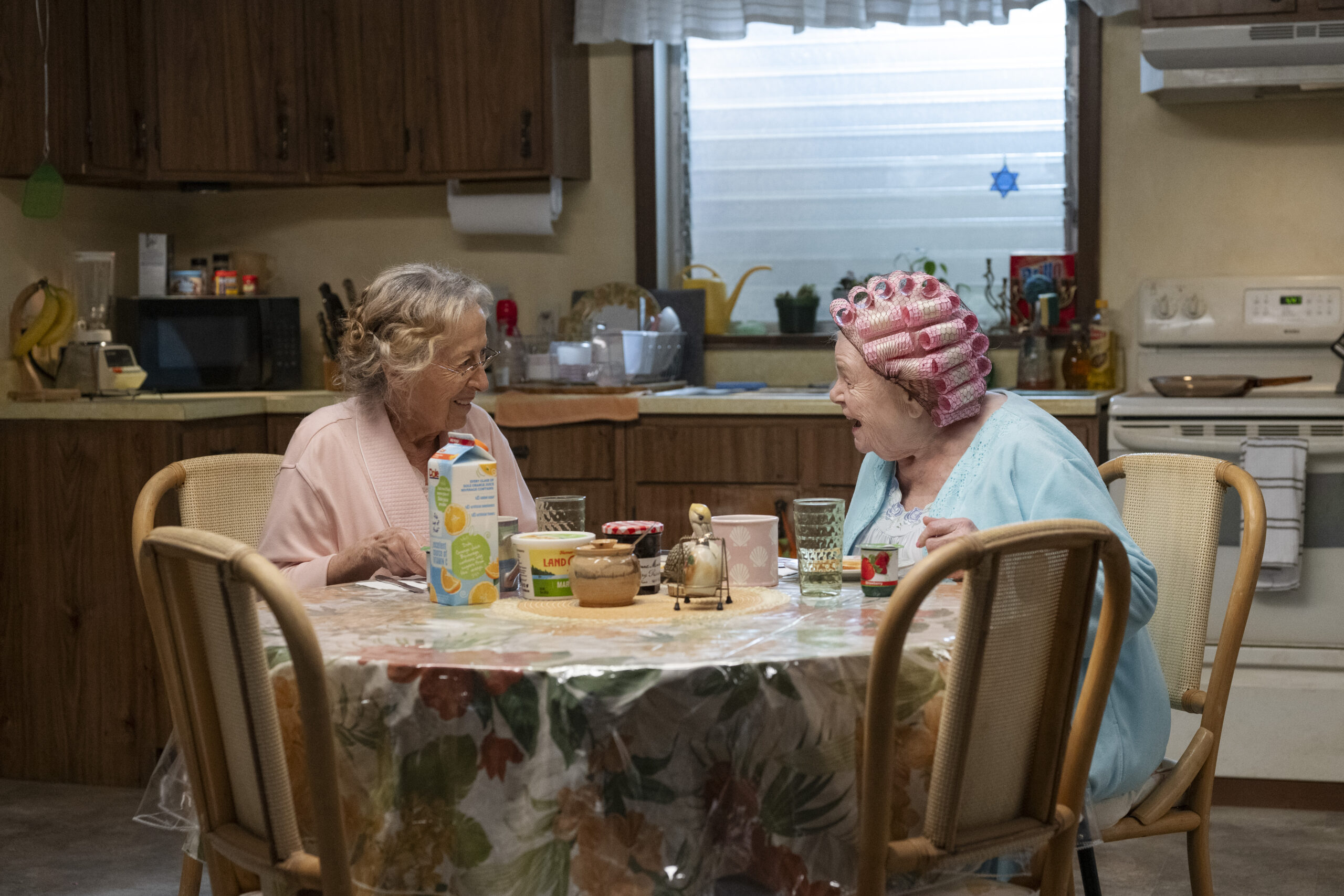
At the end of the movie, Eleanor is found out to be a fraud. She briefly loses her friendship with Nina and loses the survivor’s group, but then she is offered forgiveness. It makes you wonder if she kind of got away with her lie. What are your thoughts about that?
In the original script, when Eleanor walks back into the survivors group to apologize, a few of the survivors walk out.
Woah.
I think that would be true to life. But I think to an extent, she gets away with it. Which is fucked, obviously, she shouldn’t be getting away with it. Nobody should get away with lying like that, let alone lying at all. But I think that she learns a valuable lesson, and also, at the same time, kind of brings Bessie’s story to light; a story that Bessie only really shared with Eleanor in her whole life. And so this story is living on through Eleanor, and thank God, she kind of eventually was forced to come forward and tell the truth.
This is a movie in which I didn’t want to spoon-feed the audience a message of like, “this is bad” or “this is good.” I mean, obviously, what Eleanor does is very wrong. I sort of wanted to piss people off in a certain way, to make people think or have a little argument after the movie like, “Well, Eleanor wasn’t justified in doing that” or “I understand where she’s coming from,” because my favorite movies are ones that make me really mad. I’m not hoping to make people mad about this movie, but I am hoping to make people think about what punishment they would give her.
That’s extremely timely with Yom Kippur coming up.
She only has to wait until then to be totally absolved!
